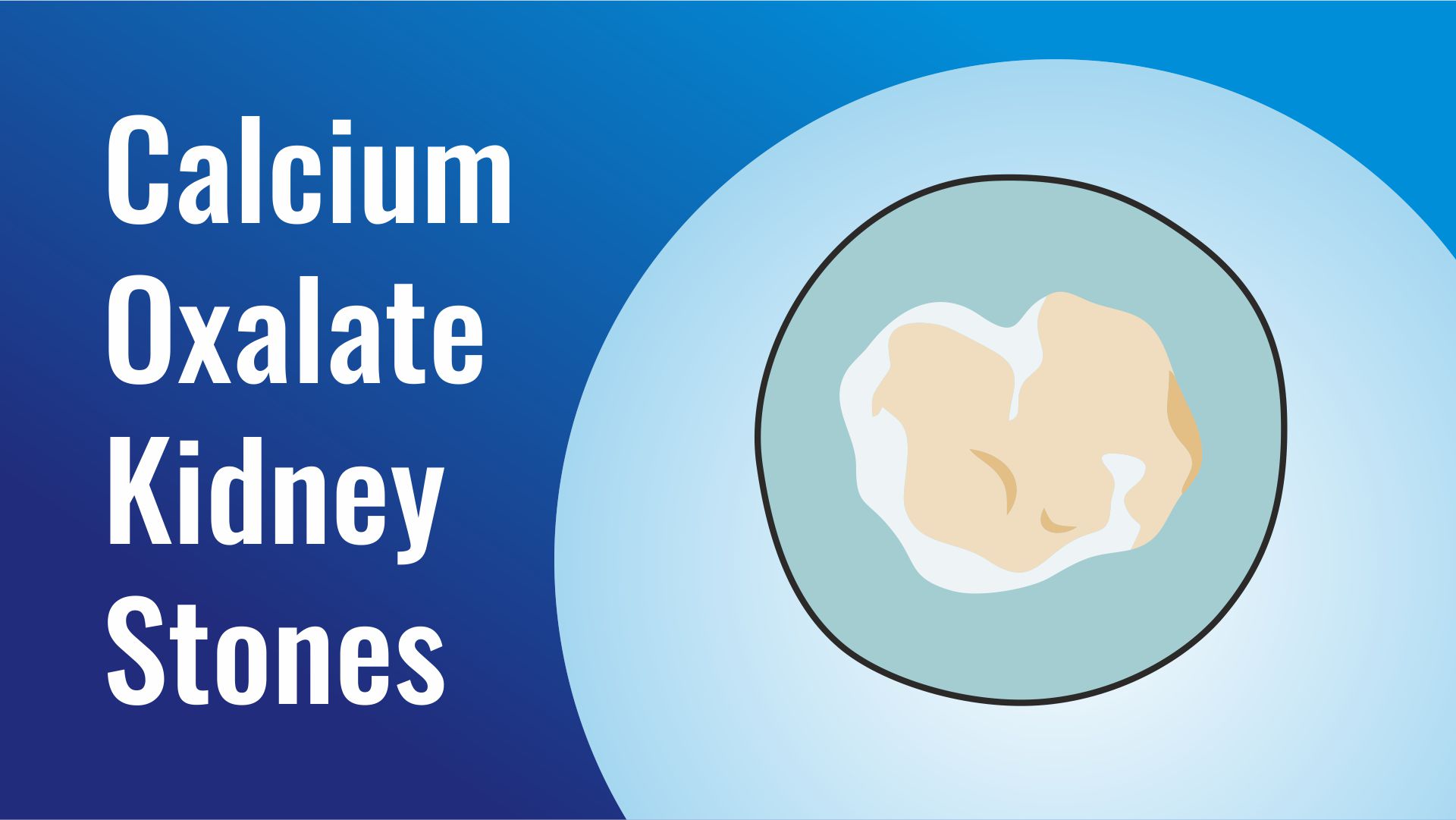Calcium oxalate kidney stones are the most common type of kidney stones, formed primarily from calcium and oxalate. These stones develop when high levels of calcium and oxalate are present in the urine, which crystallize and eventually form stones.
Formation Process:
- Oxalate in the Body: Oxalate is a natural substance found in certain foods, including spinach, beets, nuts, chocolate, and tea. It can also be produced by the liver. Normally, oxalate binds with calcium in the intestines and is excreted in the stool. However, when there’s an excess of oxalate or insufficient calcium in the intestines, oxalate can instead bind with calcium in the kidneys.
- Urine Conditions and pH: The concentration and pH of urine significantly influence the formation of calcium oxalate stones. Calcium and oxalate crystals form more easily in acidic urine.
Acidic Urine: Urine that is too acidic promotes the crystallization of oxalate with calcium, increasing the likelihood of stone formation. - Alkaline Urine: While alkaline urine (pH above 7.0) is less likely to contribute to calcium oxalate stones, it can increase the risk of other types of stones, such as calcium phosphate stones.
Types of Calcium Oxalate Stones
There are two forms
Calcium Oxalate Monohydrate Stones: These are harder and denser, making them more difficult to break up.
Calcium Oxalate Dihydrate Stones: These are softer and easier to fragment, making them slightly easier to manage.
Risk Factors:
Several factors can contribute to the formation of calcium oxalate stones:
Dehydration: Low urine output due to insufficient fluid intake increases urine concentration and raises the risk of stone formation.
Diet: High intake of oxalate-rich foods and high salt consumption (which increases calcium in the urine).
pH Imbalance: A consistently acidic urine pH increases the likelihood of calcium oxalate stone formation.
Medical Conditions: Conditions like hyperparathyroidism, chronic diarrhea, and intestinal bypass surgery can increase calcium or oxalate levels in the urine.
Genetics: Some people have a genetic predisposition to forming these types of stones.
FAQ Calcium Oxalate Kidney Stones
1. What are calcium oxalate kidney stones?
Calcium oxalate kidney stones are the most common type of kidney stones, formed primarily from calcium and oxalate, which crystallize in the kidneys.
2. How do calcium oxalate stones form?
These stones form when high levels of calcium and oxalate are present in the urine. When oxalate binds with calcium in the kidneys, crystals can form, eventually leading to stone formation.
3. What foods are high in oxalate and may contribute to stone formation?
Foods rich in oxalate include spinach, beets, nuts & chocolate. These foods can increase oxalate levels in the body.
4. How does urine pH affect the formation of calcium oxalate stones?
Acidic urine (pH below 7.0) promotes the crystallization of calcium and oxalate, increasing the risk of stone formation. Alkaline urine (pH above 7.0) is less likely to form calcium oxalate stones but may lead to formation of calcium phosphate stones.
5. What are the different types of calcium oxalate stones?
There are two forms: calcium oxalate monohydrate stones, which are harder and more difficult to break, and calcium oxalate dihydrate stones, which are softer and easier to fragment.
6. What risk factors contribute to the formation of calcium oxalate stones?
Risk factors include dehydration, a diet high in oxalate-rich foods or salt, consistently acidic urine pH, medical conditions like hyperparathyroidism, and a genetic predisposition.
7. Can dehydration increase the risk of forming calcium oxalate stones?
Yes, dehydration leads to low urine output, which concentrates the urine and increases the risk of stone formation.


Leave a Reply